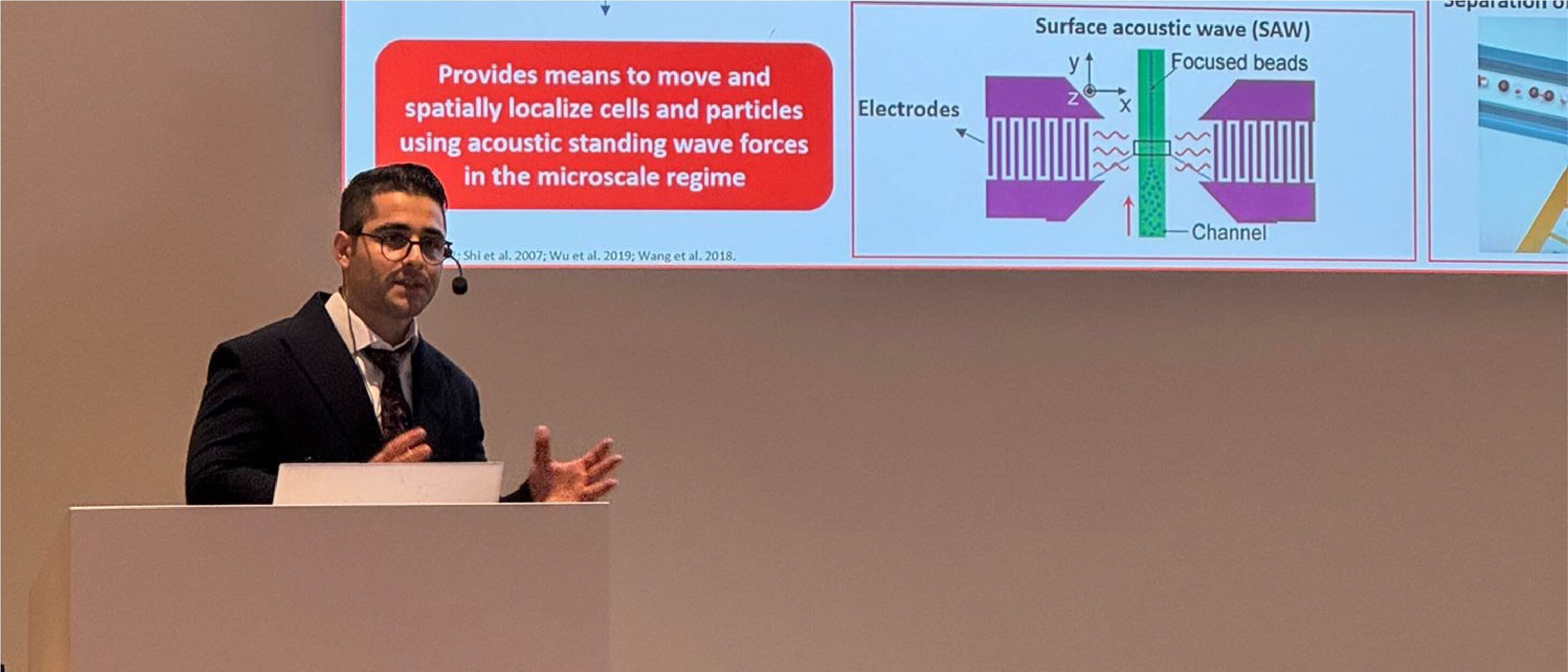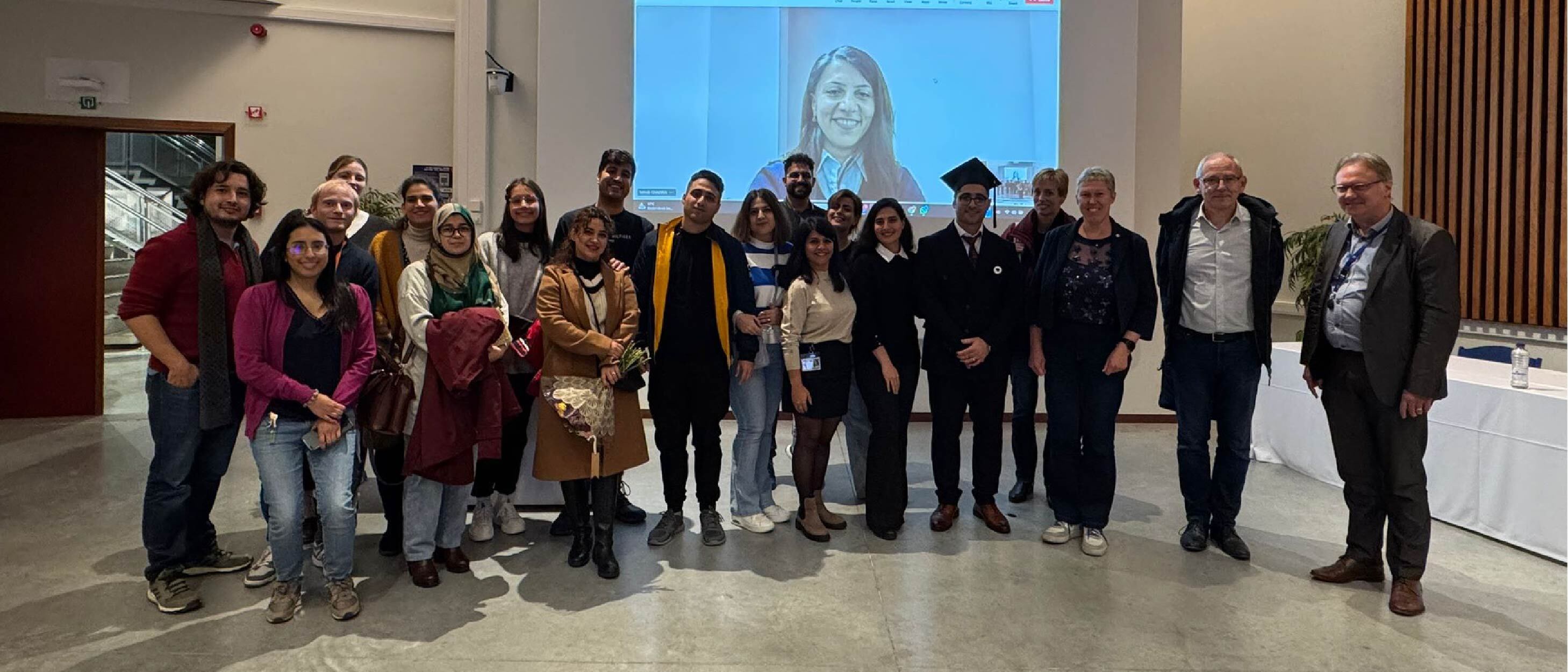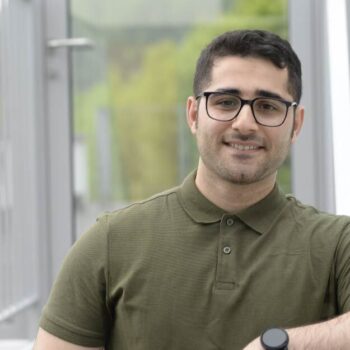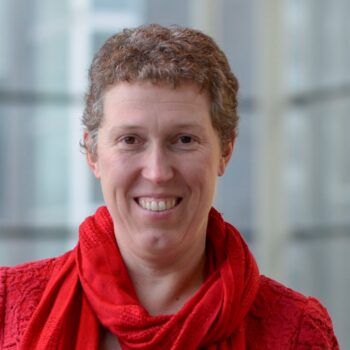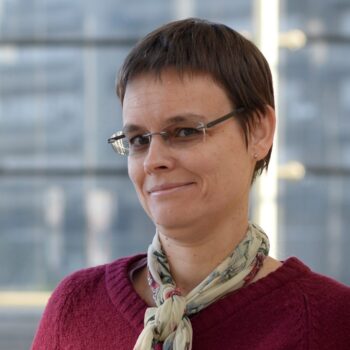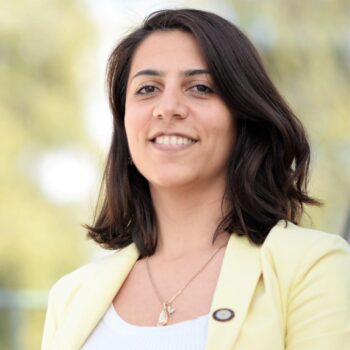Mehrdad Lotfi's PhD defence unveils microplastics in water through advanced optical techniques

Mehrdad Lotfi Choobbari has successfully defended his PhD thesis entitled 'Illuminating the invisible: Unveiling microplastics in water through advanced optical techniques' under the supervision of Prof. Heidi Ottevaere, Prof. Wendy Meulebroeck and Dr. Tatevik Chalyan.
Mehrdad Lotfi Choobbari's PhD research breaks new ground in the detection of microplastics (MPs) in drinking water using sophisticated optical technologies. As MPs - tiny fragments from larger plastic waste - continue to contaminate water sources, food, and human bodies, Choobbari’s work focuses on improving detection. He applied Raman spectroscopy to identify MPs’ unique chemical signatures and used Raman imaging to create detailed maps, capturing the complex structure of MPs. To assess MP size and concentration, he combined static light scattering (SLS) with data analysis techniques like principal component analysis (PCA) and linear discriminant analysis (LDA).
In a significant development, Choobbari designed a compact, high-throughput device for on-site MP detection. This portable system incorporates a microfluidic chip and acoustic actuator to trap MPs in water, alongside optical enhancements that increase sensitivity and reduce detection time from four days to 1,5 hours. This breakthrough device offers a rapid, reliable tool for monitoring MPs in water, representing a promising step toward combating plastic pollution and protecting environmental and human health.
"Working on the European MONPLAS project as a PhD student was an exceptionally fulfilling experience for me", Mehrdad responds. "It offered me the chance to
collaborate with leading institutions across industry and academia. This project allowed me to engage with research groups and institutions in several countries, significantly broadening my professional network in inspiring and transformative ways. The journey was made even more impactful by the vibrant and stimulating environment at B-PHOT, where I was able to expand my knowledge in optics and photonics and apply it to environmental monitoring challenges. I am excited to continue this journey as a postdoctoral researcher at B-PHOT, where my focus will be on pioneering new optical techniques to detect complex pollutants like per- and poly-fluoroalkyl substances (PFAS) in drinking water resources."

